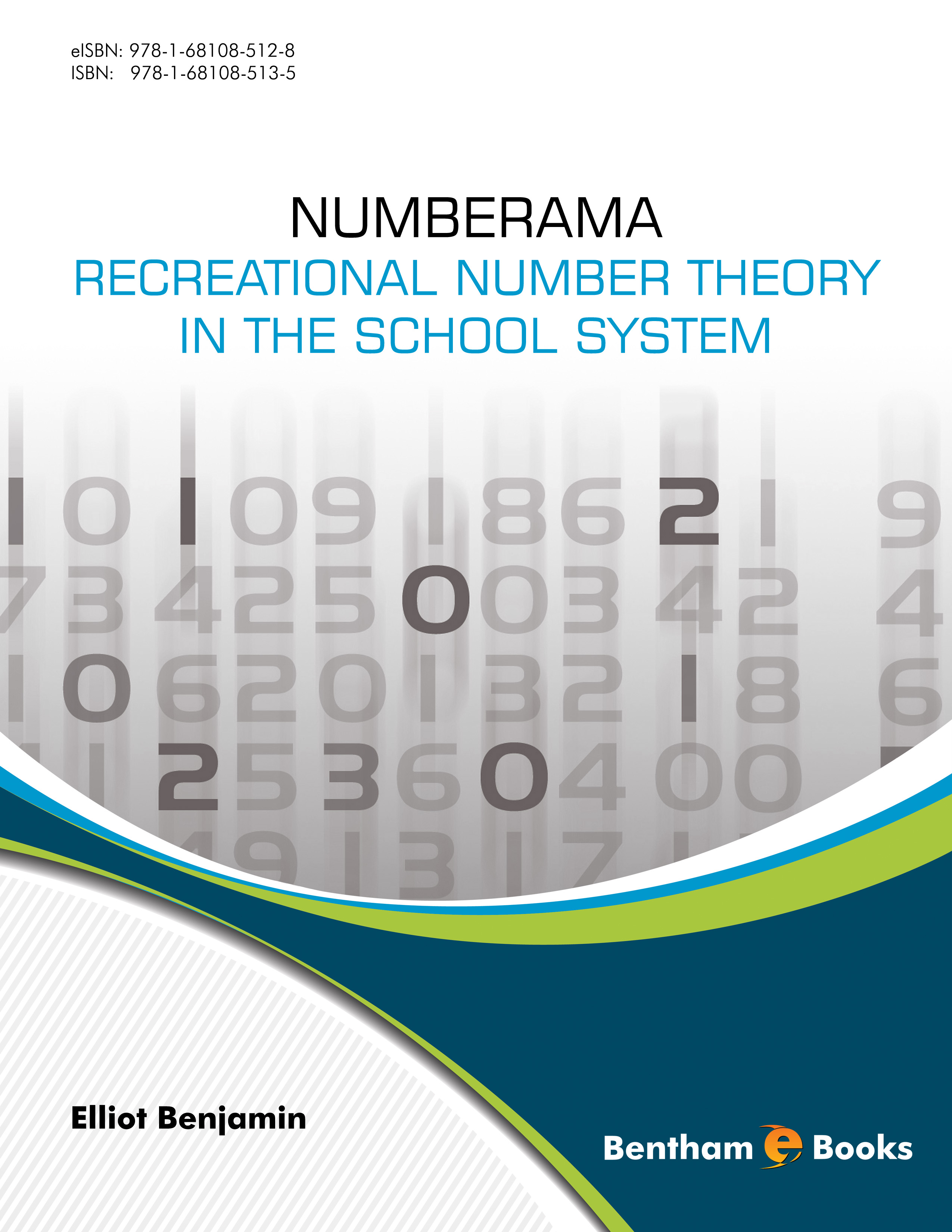Preface
It has been nearly 30 years since I began working on my Numberama book. However, in spite of the enormous developments in technology and social media over the past 30 years, the essential theme of my book remains intact. The essential theme is that mathematics can be a stimulating, challenging, and thoroughly enjoyable recreational mental activity to enhance and enrich substantial and creative thinking for children in our school system. As I describe in the Appendix, I have experienced a wide variety of appreciative and enthusiastic responses to my Numberama program over the years, ranging across teacher workshops, teacher education programs, children in gifted programs, children in regular classes, liberal arts college instruction, and family math workshops. I have also effectively utilized my Numberama program at a mental hospital for children, a senior citizen center, as a supplement in my algebra classes, and as an example of creative thinking in my psychology classes. Most recently,
I found myself giving a “perfect number lesson” on a napkin at a restaurant at a spiritual development workshop I attended. I had the workshop presenter and some of the participants and staff enraptured,
and I realized that Numberama is deeply ingrained in me, wherever I go and whatever I do.
I am still a pure mathematician, and I practice what I preach. Doing mathematics for me is refreshing, stimulating, meditative, and enjoyable. I occasionally make use of technology to try to find examples of some of my pure mathematics algebraic number theory results, but this is always very secondary, as the priority is on my “thinking.” And this is the exact same philosophy I promote in my Numberama program in regard to the use of technology. Technology is a wonderful tool, but it is essential for the human being to be in control of the technology and not the other way around. Thus finding interesting, surprising, and enticing patterns of numbers, with the assistance of arithmetic calculators when the numbers invariable get very large, is a natural part of my Numberama problems. But what is most important here is the discovery of the patterns themselves, using technology to enhance the discovery.
With this in mind, I am excited to now be offering my Numberama book as an e-book through Bentham publications. I welcome feedback from anyone who is using my Numberama problems and games, and I hope that I have succeeded in transmitting the joys of searching for captivating patterns of numbers in my book.
Elliot Benjamin
Instructor of Mathematics at CAL Campus,
Psychology Mentor/Ph.D Committee Chair at Capella University,
Minneapolis,
USA

